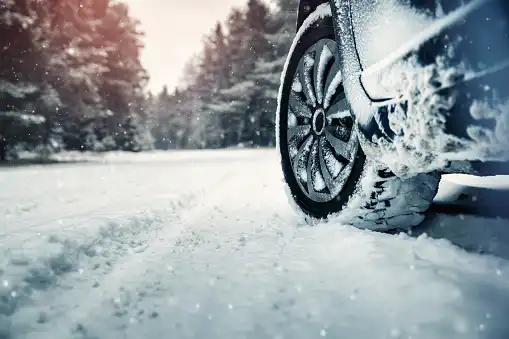
The winter weather forecast remains uncertain, but one certainty remains: The next three months will be among the most dangerous times of the year for traffic accidents in Omaha.
Channel 6 news is among the local and regional sources reporting that a La Niña effect will keep waters colder in the Pacific through the winter months. However, much of Nebraska sits in a border area that could see either warmer- or colder-than-normal conditions.
We could get a lot of freeze-and-thaw cycles, which can make ice a problem. Black ice can pose a serious threat to unsuspecting motorists.
Of course, far too many motorists are already driving distracted or fatigued, issues exacerbated by inclement weather of all kinds, but particularly winter weather. Distractions in winter can be particularly dangerous, as extra time and attention is often needed to avoid an accident.
Nebraska law prohibits drivers from texting while driving. But drivers need to go above and beyond the letter of the law when driving in inclement weather by avoiding distractions of all kinds.
Avoiding Omaha Traffic Accidents This Winter
AAA Exchange offers a number of tips for driving in winter weather:
- Avoid driving fatigued, allow yourself plenty of time to reach your destination, and always wear your seat belt. Basic common sense will tell you traffic safety is even more critical while driving in winter weather.
- Make sure your vehicle is properly maintained, including tires appropriate for winter.
- Keep your gas tank at least half full and never warm a car unattended or in an enclosed garage.
- Be an active driver. Avoid using cruise control in icy or snowy weather, and always look and steer in the direction you want to travel.
- Long-distance travel requires special consideration. Always watch the forecast along your travel route, travel with a fully charged cell phone, and allow plenty of travel time.
- Have a plan if you get stranded. Safety advocates recommend remaining with your vehicle until the weather threat has passed. Tie a cloth to your antenna or enclosed window to signal distress. Run your vehicle sparingly and make sure the tail pipe remains free of ice and snow for proper exhaust.
Driving in snow presents its own unique challenges
When the roads are slippery, always try to make slow, even movements when it comes to steering and braking, and always accelerate and decelerate slowly. Reduce your speed and allow plenty of distance between your vehicle and the vehicle in front of you. Begin braking early at intersections and watch ahead for pedestrians or other potential hazards along your route.
Hills can be particularly challenging. Don’t stop if you can avoid it. Keep your forward inertia but resist the urge to power up hills. Applying extra gas typically only makes your tires spin and causes you to lose forward momentum.
Finally, if you don’t have to travel, don’t travel at all. Staying home is the safest option when winter weather presents unexpected challenges to reaching your destination safely.
At-fault accidents and liability
Experienced auto accident attorneys in Omaha understand that severe winter weather not only increases the risks of accidents, but also often complicates determining fault and liability in the event that a collision results in serious or fatal injury. Carefully documenting the scene with cell phone pictures and gathering the names and phone numbers of witnesses can be a critical first step. And contact an experienced Omaha injury law firm right away, while the weather and driving conditions can be carefully documented, to protect your rights.
Car Accident - Suffered a TBI
Jury Verdict - Injury in Bunionectomy Surgery
Truck Accident - Suffered a TBI in Semi Collision
Wrongful Death - 20 Year Old in Car Accident
Jury Verdict - Car Accident - Multiple Surgeries
Wrongful Death - Trip & Fall in a Restaurant
Wrongful Death - In Medical Malpractice Case
Medical Malpractice Settlement
Car Accident - Injured in T-Bone Accident
Slip & Fall - Jury Verdict
Car Accident - Jury Trial
"I would highly recommend Jason Ausman and his team. Jason was extremely helpful during the settlement of my case and his support team also was great to work with."
"So much compassion and patience from everyone at this firm. I’m incredibly thankful for their dedication to my case and making sure I received the best outcome possible. Thank you!"
“Michelle Dreesen and her firm Ausman Law were very professional, caring and provided outstanding guidance with our case. Totally recommend her and her firm.”
“A professional, knowledgeable and dedicated team. Ausman Law managed my case and advocated for me exceeding my expectations! Thank you Ausman Law!”
“Jason and his team are very smart professional and personable.. easy to work with and make you feel comfortable working with them.. definitely the law firm you want in your corner!”
"Jason and his staff are the best! I was always made to feel like I was a priority when speaking with Jason or one of the wonderful ladies in his office. It was an awesome client experience and I will definitely call them again when I need a good attorney!"
"Matt and Ann took on a very difficult case. They care!! They definitely worked hard and never gave up!! Much appreciated."


